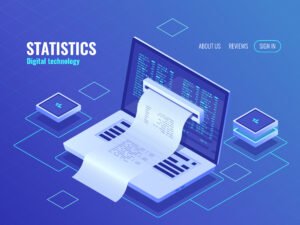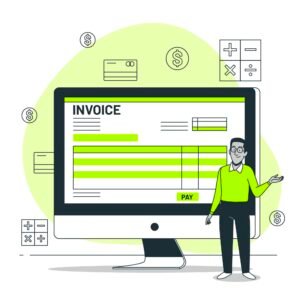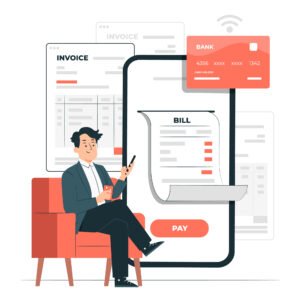Startup Guide: Do You Really Need A Company Secretary In Malaysia?
Have you ever wondered about the distinct roles that different professionals play in the successful management of a business? One such role that often sparks a conversation is that of a company secretary, particularly in Malaysia. As you embark on your entrepreneurial journey, understanding whether you truly need a company secretary could be a vital factor in your business’s compliance and governance.

Understanding the Role of a Company Secretary in Malaysia
To appreciate the necessity of a company secretary, it’s essential to first understand what this professional actually does. Defined within the framework of Malaysian law, a company secretary is required for every company registered in Malaysia. Their responsibilities extend beyond just paperwork; they play a crucial role in advising the board of directors and ensuring that the company complies with legal and regulatory requirements.
What Are the Key Responsibilities of a Company Secretary?
A company secretary in Malaysia carries a multitude of responsibilities that are critical to the smooth functioning of a business. Here are some of their key roles:
-
Corporate Governance: They ensure that the company complies with statutory and regulatory requirements, and they help cultivate an effective governance framework.
-
Record-Keeping: Maintaining accurate records of company activities, including minutes of meetings, resolutions, and statutory filings is another essential duty.
-
Communication with shareholders: A company secretary manages the communication between the board of directors and the shareholders, ensuring that all parties are informed of important developments.
-
Meeting Coordination: They organize board meetings, prepare agendas, and circulate minutes, fostering effective communication and decision-making.
-
Compliance Management: A company secretary is crucial for ensuring compliance with the Companies Act of 2016 and other relevant laws. They help by filing annual returns and ensuring that all mandatory documents are submitted on time.
Legal Requirement: Do You Need a Company Secretary?
Under the Companies Act 2016, it is a legal requirement for every company in Malaysia to appoint a company secretary. This brings us to an important question: if it’s a legal requirement, does it mean you genuinely need one, or can you manage without it?
-
Mandatory Appointment: If you’re starting a private limited company (Sdn Bhd), you must appoint a company secretary within 30 days of incorporation. Failure to do so can result in penalties.
-
Expertise and Guidance: Having a company secretary is beneficial because they bring knowledge and expertise. They keep abreast of updates in laws and regulations which could otherwise overwhelm a new entrepreneur.
The Benefits of Having a Company Secretary
You might be wondering what advantages a company secretary brings to your business. Here’s a closer look at some substantial benefits:
Enhanced Compliance and Reduced Risk
Compliance with legal norms can be daunting, especially when starting a new business. A company secretary helps you navigate this complexity, reducing the risk of legal issues arising from non-compliance. Their familiarity with the regulatory landscape can ensure that all submissions are made correctly and promptly.
Efficient Documentation and Record-Keeping
Proper documentation is vital for effective business operation and stakeholder relationship management. With a company secretary on board, you can rest assured that all essential documents will be orderly and accessible when required.
Better Corporate Governance
Strong governance is key to any successful business. A company secretary’s work provides a foundation for sound decision-making at the board level. By ensuring that board meetings are conducted in a structured and timely manner, they improve the overall governance of the company.
Stronger Shareholder Relations
A company secretary acts as a liaison between the shareholders and the management. This relationship is crucial for the transparency and flow of information, which can foster trust and support from shareholders.
Choosing the Right Company Secretary
Now that you understand the importance of a company secretary, it’s essential to know how to choose the right one for your business. What should you look for?
Qualifications and Experience
You want someone who is qualified and experienced in corporate governance and legal compliance. A licensed company secretary is mandatory under Malaysian law, so ensure that they have the appropriate credentials.
Industry Knowledge
Every industry has its nuances. Hence, finding a company secretary with knowledge and experience in your specific sector can provide additional insights beneficial for your business’s compliance needs.
Compatibility and Communication
It’s essential to choose a company secretary you feel comfortable communicating with. Since their role involves advising and guiding you on various matters, good chemistry can make a significant difference in how effectively they represent your company.
Fees and Services Offered
You should consider the cost of hiring a company secretary against the services they offer. While it’s important to be budget-conscious, select a secretary who provides value that aligns with your business requirements.
When Can You Consider Going Without a Company Secretary?
While many businesses benefit significantly from having a company secretary, there are some scenarios where you might feel you can manage without one.
Small Businesses with Limited Activity
If you’re running a very small business with limited operational complexity, it might seem feasible to forego hiring a company secretary. However, remember that even small businesses must comply with statutory requirements and good governance practices.
Understanding Compliance in Limited Situations
If you are well-versed in compliance matters and have an understanding of the legal framework surrounding corporate practices, you might consider taking on the responsibilities traditionally handled by a company secretary. Just keep in mind that the nuances of compliance can be overwhelming, and it’s easy to overlook important obligations.
Engaging External Support
Some businesses choose to hire external consultants or accounting firms that offer company secretary services. This can be a more cost-effective solution for those who may not require a full-time company secretary but still need professional guidance.
Common Misconceptions About Company Secretaries
As you think about the role of a company secretary, it’s important to clear up a few common misconceptions.
“A Company Secretary Only Handles Paperwork”
While it’s true that paperwork forms a significant part of a company secretary’s responsibilities, their role is largely about governance. They lend strategic insights, provide legal advice, and facilitate meetings, ensuring proper corporate governance beyond just managing documents.
“Only Larger Companies Need a Company Secretary”
The need for a company secretary is unrelated to the size of the business. Every registered company, regardless of its size, is required by law to have a secretary in Malaysia. Smaller companies might even benefit more, as they will have someone to help streamline compliance processes.
“You Can Manage Everything Yourself”
While you might think that you can handle the legal aspects on your own, the reality could be different. Without a company secretary’s expertise, you may inadvertently overlook important compliance requirements, leading to potential legal repercussions.
Summary: Making Your Decision
In summary, having a company secretary in Malaysia is not just a legal requirement; it’s a smart move for any business looking to establish strong governance and compliance frameworks. Their role in facilitating efficient operations, maintaining records, and ensuring legal compliance is invaluable, especially for startups.
While it can be tempting to believe you can handle everything yourself or avoid hiring a company secretary, the benefits they bring to your business cannot be overstated. Consider your unique circumstances, and weigh the pros and cons before making a decision.
Taking the plunge into entrepreneurship can provoke a mix of excitement and anxiety. Having the right team in place, including a competent company secretary, can help you navigate the turbulent waters of starting and running a successful business.


 The classic paper invoice has its days numbered. In 2025, all businesses will be required to issue electronic invoices. However, in addition to being mandatory shortly, these invoices benefit businesses in many ways.
The classic paper invoice has its days numbered. In 2025, all businesses will be required to issue electronic invoices. However, in addition to being mandatory shortly, these invoices benefit businesses in many ways. This represents a significant time-saving in some declarations, such as the INCOME TAX, since gathering all the previous year’s invoices is unnecessary because they are located and organized on the same platform.
This represents a significant time-saving in some declarations, such as the INCOME TAX, since gathering all the previous year’s invoices is unnecessary because they are located and organized on the same platform.




